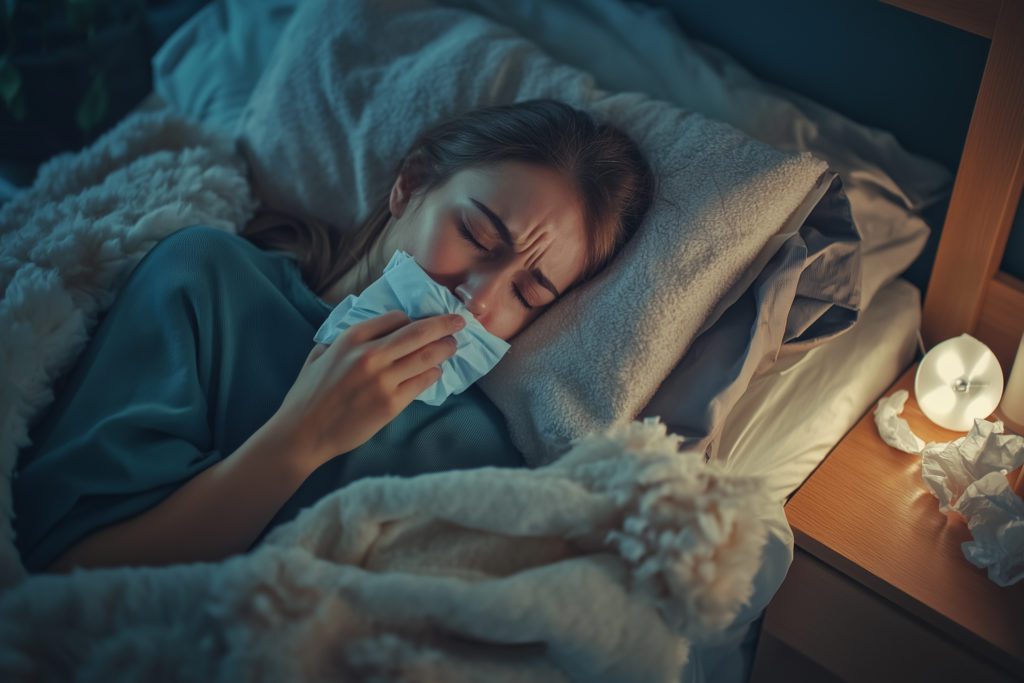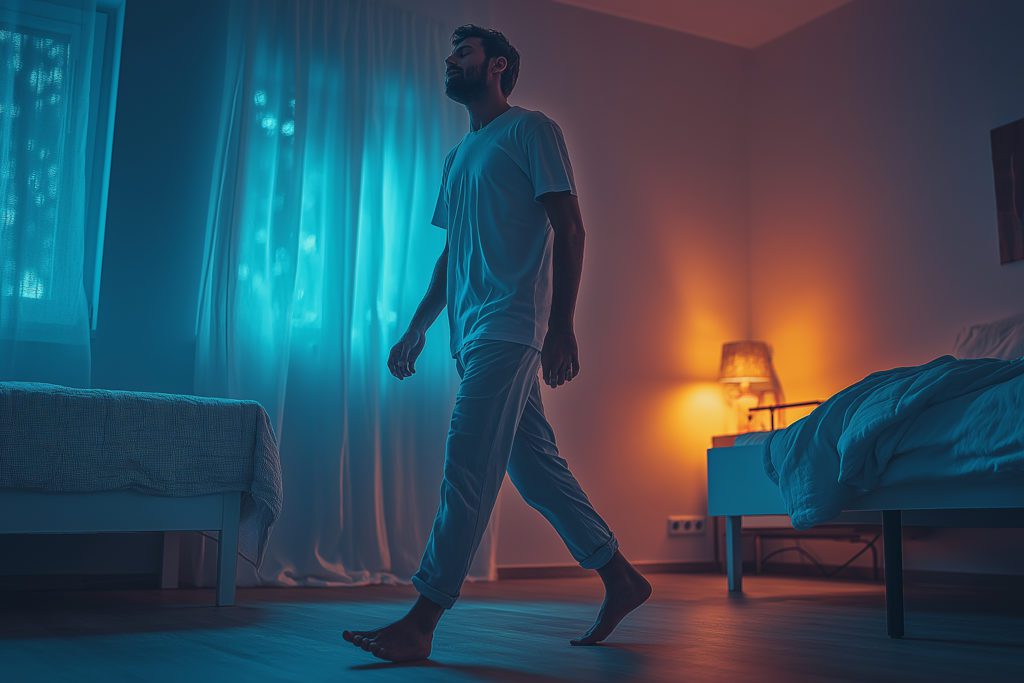
Understanding Bruxism: Causes, Symptoms, and Consequences of Teeth Grinding
Bruxism is a condition where someone grinds, clenches, or gnashes their teeth. Explore bruxism’s symptoms, causes, and treatment options.

Grinding, clenching, gnashing—these are all actions completed by people with bruxism, which can damage the teeth and surrounding muscles. This condition can appear both during the day and at night, but most of the time, those who have bruxism aren’t aware of it.
This guide contains everything you need to know to understand bruxism, including how to identify it, what causes it, what its risk factors are, the consequences of teeth grinding, and what you can do to halt bruxism and manage any damage.
What is Bruxism?
Bruxism is a condition in which someone grinds, clenches, or gnashes their teeth. It may also be referred to simply as teeth grinding, both in life and throughout this article, but remember that this is not the only characteristic of bruxism.
Bruxism can occur whether someone is awake or asleep. When awake, they may unconsciously clench their teeth, especially if they’re stressed, angry, or anxious, or they may grind or clench them in their sleep.
Bruxism that occurs when someone is sleeping is considered a sleep-related movement disorder and, like all sleep disorders, can have drastic effects on someone’s sleep duration and quality.
The Signs of Bruxism
The signs of bruxism can include:
- Teeth grinding or clenching, often heard by a sleep partner
- Worn tooth enamel
- Flattened, chipped, fractured, or loose teeth
- Increased tooth sensitivity or pain
- Pain or soreness in the neck, jaw, or face
- Tired or tight jaw muscles
- Dull headaches that start in the temples
- Earache-like pain
- Sleep disruptions
- Rawness on the inside of your cheek
What Causes Bruxism?
Doctors are not entirely sure what causes bruxism, although there may be psychological, physical, and genetic factors at play. Awake bruxism may be a habit exhibited when concentrating, a coping strategy, or be tied to emotions of stress, anxiety, anger, or tension. As for sleep bruxism, it may be tied to these same emotions, especially stress, or may be a sleep-related chewing activity that is associated with sleep arousals.
While the exact cause is not known, there are some risk factors that can increase someone’s risk of bruxism.
Negative Moods
Bruxism is associated with increased negative moods, such as stress, anxiety, frustration, and anger. While not everyone who feels stressed or angry resorts to teeth grinding, for some people, these moods can cause bruxism to occur or may worsen its severity.
Age
Bruxism is more common in young children and often goes away by the time they reach adulthood.
Certain Medications
Bruxism may be a side effect of some medications, including certain antidepressants. However, it’s a generally uncommon side effect.
Using Various Substances
Smoking, drinking alcohol or caffeinated beverages, and using recreational drugs are all habits that can increase the risk of bruxism.
Personality
Those who have a personality type that is competitive, aggressive, or hyperactive may be at an increased risk of bruxism, primarily because these personality types lend the way to more frequently experienced negative emotions.
A Family History
Sleep bruxism is often a trait passed down through families, so those who have family members with bruxism may be more likely to have it themselves.
Other Medical Conditions
Bruxism may be associated with other medical and mental health disorders, including dementia, Parkinson’s disease, epilepsy, gastroesophageal reflux disorder (GERD), sleep apnea, night terror, and attention-deficit/hyperactivity disorder (ADHD).
Consequences of Bruxism
Bruxism rarely causes serious complications; however, if bruxism is severe, it may lead to damage in the teeth or jaw, severe facial or jaw pain, tension-type headaches, and disorder in the temporomandibular joints (TMJs), which can sound like clicking when opening and closing your mouth.
Furthermore, sleep bruxism itself is a sleep-related movement disorder, and its presence can make someone more likely to have other sleep disorders, such as sleep apnea.
Halt the Tooth Grinding
The good news about bruxism is that, in most cases, treatment isn’t necessary. Most children outgrow this condition without needing treatment, and many adults don’t clench or grind their teeth to such an extreme that they need therapy.
However, severe cases of bruxism, while uncommon, can occur. In these cases, treatment may include dental approaches or therapies to prevent more damage and relieve discomfort.
Since the biggest concern with bruxism is its impact on the teeth, a dentist is often called in to evaluate the mouth and determine if interventions are needed. These interventions may include mouth guards, which help to keep the teeth separated. If severe damage has already occurred, the dentist may need to reshape the tooth’s chewing surface or use a crown to repair the damage.
The goal of both these dental interventions is to prevent or correct the wear experienced by the teeth—not to stop bruxism.
When it comes to stopping bruxism, these approaches may help:
- Stress or anxiety management. Stress is a common cause of teeth grinding, so strategies implemented to reduce stress levels can help to halt bruxism. Furthermore, in cases of anxiety, working with a licensed therapist or counselor can help to address the anxiety, which may then relieve bruxism, among other anxiety-related symptoms.
- Behavior changes. Practicing proper mouth and jaw positioning can help to change bruxism behaviors. A dentist can help you find the best position for your mouth and jaw.
- Address associated disorders. If bruxism occurs as a result of other disorders, addressing these disorders can help relieve your bruxism. For example, if bruxism is a side effect of medication, talking to your doctor about changing your medication can help mitigate this side effect.
Bruxism is a condition characterized by grinding, clenching, or gnashing of the teeth, and it often affects those around the teeth grinder more than it bothers the person with bruxism. While it doesn’t usually cause problems, in some cases, it may cause tooth damage or pain in the jaw, face, teeth, or temples.
You can work with your doctor or dentist to stop bruxism, but many times, since bruxism is often mild, lifestyle and home remedies may be enough to help prevent it. For example, reducing stress, practicing good sleep habits, and avoiding stimulating substances in the evening can all help to prevent bruxism, especially sleep bruxism.
FAQ
Is jaw clenching the same as teeth grinding?
Both are forms of bruxism but differ in movement. Grinding involves a back-and-forth motion of the teeth, while clenching is pressing the teeth together without movement. Both can strain jaw muscles and lead to dental damage if untreated, so seeking advice is vital.
Can bruxism lead to serious dental problems?
Chronic bruxism can cause significant damage, including tooth wear, fractures, and even tooth loss. It may also strain the jaw, leading to temporomandibular joint dysfunction (TMJ), causing pain and difficulty chewing. Early intervention can help prevent long-term consequences and protect oral health.
Can Teeth Grinding Affect my Sleep Quality?
Yes, teeth grinding (bruxism) can affect sleep quality. People who grind or clench their teeth during sleep may experience disrupted sleep patterns due to jaw discomfort or muscle fatigue. This can prevent restful sleep and lead to feeling fatigued or unrested the next day. Additionally, the noise caused by grinding may disturb a partner's sleep, compounding the issue.
Are there effective treatments for bruxism?
Treatment includes using custom-made night guards to prevent tooth damage, stress management to address psychological triggers, and therapies for sleep disorders. In some cases, muscle relaxants or physical therapy may help. A dentist or specialist can tailor a treatment plan to your needs.
Can bruxism cause headaches?
Yes, bruxism often causes tension headaches due to overworked jaw muscles. These headaches are most common in the morning for those with sleep bruxism. Jaw pain or discomfort accompanying the headache can help identify bruxism as the underlying cause.
How can I tell if I grind my teeth at night?
Signs of night bruxism include waking with jaw pain, headaches, or tooth sensitivity. A partner might hear grinding sounds. Dentists can detect it by examining teeth for wear patterns. If you suspect bruxism, consult a dentist who may recommend a night guard or further evaluation, including a sleep study.

Written by
Jessica G
Medical writer freelancer who has written hundreds of articles on varying topics. Masters of Engineering degree in Biomedical Engineering.
Download Pillow
Get help
Press & News
Legal
Connect
X (Twitter)
Company
Copyright © Neybox Digital Ltd.



